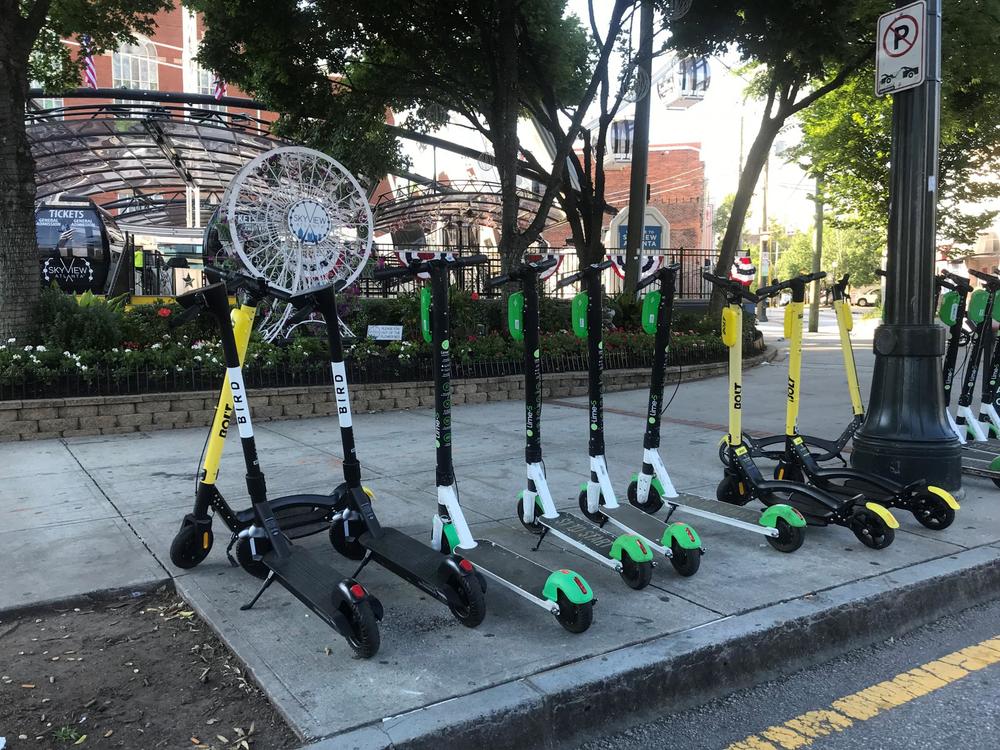
Caption
Atlanta's 2019 ban on use of e-scooter vehicles after 9 p.m. has increased travel times in the city, a Georgia Tech study found.
Credit: ROSS TERRELL / GEORGIA PUBLIC BROADCASTING

Atlanta's 2019 ban on use of e-scooter vehicles after 9 p.m. has increased travel times in the city, a Georgia Tech study found.
If you’re looking to ride an e-scooter or e-bike in Atlanta between 9 p.m. and 4 a.m., you’re out of luck. The scooters are equipped with technology that disables them overnight to comply with Atlanta's ban, which took effect in 2019.
That ban, enforced by GPS tracking and "geofencing" technology to ensure universal compliance, presented an opportunity for Georgia Tech researchers. They compared user behavior before and after the ban using data from Uber Movement in certain areas around the city, says the study's principal investigator Omar Asensio.
"We looked at the Midtown area as a proxy for urban centers and we also looked around MARTA stations," Asensio said.
They found that without the e-scooters and e-bikes, people mostly turned to personal vehicles and ride-sharing, which added 784,000 hours of travel time each year for Atlantans.
Asensio says that extra time on the road costs drivers millions of dollars in time lost. “You could imagine that if these kinds of bans were extended during the day, the costs would compound, for sure."
Asensio says he knows of no plans to extend the ban during the day.
The increase in travel time was even greater around large sporting events at Mercedes Benz stadium. Researchers found drivers spent 37 percent more time traveling--about 12 minutes on average--because of the scooter ban.
Whether such behavior is an indication of how people in other U.S. cities might respond to a similar band is an open question, Asensio said.
"Clearly if you had a public transit system that's more reliable, you might have additional substitution going to public transit [as opposed to cars]," he said. "But I think that this study shows is that when scooters aren't available, people just go back to cars for last-mile travel."
The findings were published in the journal Nature.